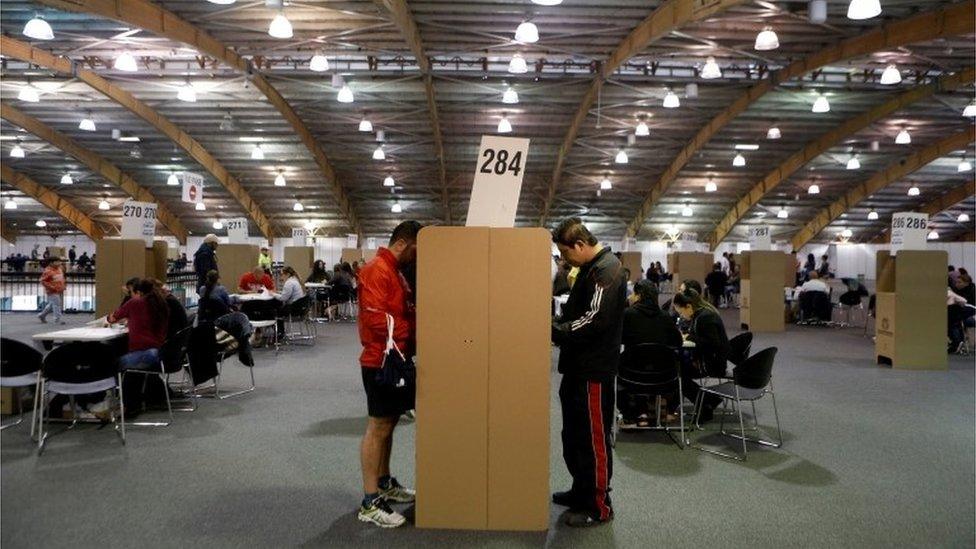Colombia anti-corruption referendum fails to meet quorum
- Published

Nearly 12 million people went to the polls, but that was too few for the referendum to be valid
Colombia's anti-corruption referendum has failed to reach the minimum number of votes required for it to be valid.
Less that 12 million people went to the polls and the referendum needed a little more than 12 million to take part for it to be binding.
However, an overwhelming majority of those who did vote approved the anti-corruption measures proposed.
Each of the seven measures had more than 99% support.
But for the referendum to be valid, a third of the country's 36.4 million eligible voters had to take part and the turnout fell just short of that.
The proposed measures include a cut in wages of members of Congress, bans on alternative sentences like house arrest for corruption, forcing elected officials to publish their tax returns and a three-term limit on local and national lawmakers.
Corruption is rife in the country despite efforts to tackle the problem through laws, more thorough investigations and even by raising public awareness through campaigns.
The outgoing comptroller general, Edgardo Maya, said recently that corruption was costing the country more than $15bn a year.
"They are stealing everything," he said.
However, politicians will probably have to take note that an overwhelming majority of those who did vote approved the measures.
Supporters said it showed Colombians were fed up with the scandals and wanted to hold politicians to account.
"Citizens want a real and genuine change in political practices," said Angelica Lozano, a Green party senator who campaigned for "Yes".
Other members of Congress who supported the "Yes" campaign said they would present a number of new laws based on the seven measures in Congress this week.
- Published26 August 2018
- Published28 June 2017
- Published17 April 2019